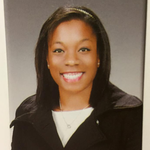Step by Step, Little by Little
Step by Step, Little by Little
The other day, I was teaching a lesson with one of my business students. His goal was to improve his sentence structure. In my experience, I have met many students who tend to answer in short, incomplete sentences. It doesn’t necessarily mean that they don’t know what I’m talking about (because some students answer yes or no, even if they have no idea about the meaning of the question that I asked).
The lesson that we had together was very useful to him. After helping him improve his sentence structure, I thought about how I could use that information to learn other languages. It’s all the same, really. Each language has it’s own grammar rules and our main objective is to be able to express ourselves in a way that we want. Yet, almost everyone struggles with the same thing: using complete sentences.
Here is how we can make a complete (or complex) sentence in English. First, you will need some ingredients:
1 Subject:
What is a subject?
A subject is a noun phrase functioning as one of the main components of a clause, being the element about which the rest of the clause is predicated. Basically, it’s the main topic of the sentence. Some example subjects can be:
- cars
- I
- The head teacher at the university
1 Predicate:
What is the predicate?
A predicate is the part of a sentence or clause containing a verb and stating something about the subject. Some example predicates can be:
- run
- work at home
- set an appointment with the student’s parent
Let’s make some complete sentences using the information that we have so far (the verbs have been italicized).
- Cars run.
- I work at home.
- The head teacher at the university set an appointment with the student’s parents.
How do I make a complex sentence?
To make a complex sentence, all you need to do is add a few adjectives, adverbs, and prepositional phrases to the subject. You can also add direct objects, adverbs, and prepositional phrases to the predicate. Here are definitions to these words (for those whom are curious).
adjective: a word or phrase naming an attribute, added to or grammatically related to a noun to modify or describe it.
adverb: a word or phrase that modifies or qualifies an adjective, verb, or other adverb or a word group, expressing a relation of place, time, circumstance, manner, cause, degree, etc. (e.g., gently, quite, then, there).
prepositional phrase: a modifying phrase consisting of a preposition and its object.
direct object: a noun phrase denoting a person or thing that is the recipient of the action of a transitive verb, for example the dog in Jimmy fed the dog.
Let’s practice!
How could we expand this sentence?: People get surgery.
Add one or more adjectives to the subject.
- Rich people get surgery.
Add one or more prepositional phrases to the subject.
- Rich people *in Hollywood* get surgery.
Add one or more direct objects to the predicate. You may also add adjectives to the objects.
- Rich people in Hollywood get plastic surgery.
Add one ore more adverb to the predicate.
- Rich people in Hollywood frequently get plastic surgery.
Add one or more prepositional phrases to the predicate.
- Rich people in Hollywood frequently get plastic surgery *at a clinic*.
Use a modal like “can” or “should”.
- Rich people in Hollywood shouldn’t frequently get plastic surgery at a clinic.
Now, you try! Can you make the following sentences more complex? Comment below!
- The printer is working.
- The man is sleeping.
- The baby is crying.
- The chef is cooking.
If more people did exercises like this, fully expressing oneself wouldn’t be as difficult as it seems. Exercises like this work for all languages at all levels. It’s up to you to chose the words to use in your sentences. Try to change it up! Look in the dictionary for new words and inspiration.
Good luck!
Note: If there are any words or phrases that you do not understand in this post, please comment below and I can help you with understanding everything. Ciao!
2016年12月9日





